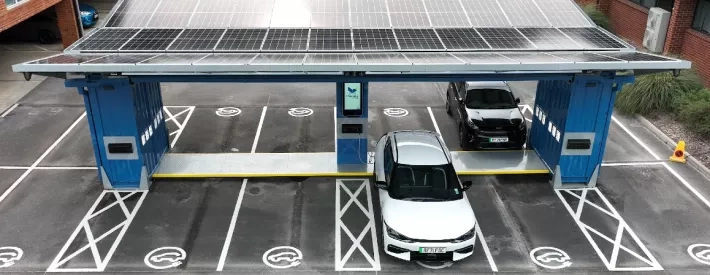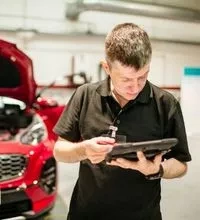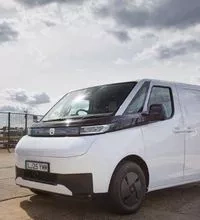How solar could be the next stage in EV charging

As the UK edges closer to an electrified future, pressure is mounting to make sure that the recharging infrastructure is in place to support the number of EVs on the road.
While home charging will be crucial to adoption, more widely available charging systems will also need to be considered. And where the electricity comes from.
Solar could well be one option and firms including 3ti are developing the technology to help support the electric future.
3ti designs, installs and operates Solar Car Parks (SCP), using a three pronged approach to generating renewable energy from car parks. It integrates local mains electricity with solar power, Battery Energy Storage Systems and EV charge points, to deliver secure, consistent, clean solar energy for businesses while simultaneously providing low carbon, fast EV charging infrastructure for employees, suppliers, customers and the general public.
Papilio3 is 3ti’s latest modular system that can provide up to 12 fast EV charge points and builds on the work the company has already done with Bentley Motors in Crewe and JP Morgan Chase in Bournemouth, and projects it is working on for the Ministry of Defence.
“Solar is an abundant source of renewable energy – yield from our first Papilio3 unit at Surrey Research Park has already topped 4.86MWh, and all 12 charging points have been in regular use,” said Tim Evans, 3ti founder and CEO. “The most recent International Energy Agency statistics show that, thanks to higher solar and wind power generation, renewable electricity production is up by 9.8% year-on-year across all Organisation for Economic Cooperation and Development countries, but there is still plenty of room for further improvement.”
In June this year, the first Papilio3 unit generated 2.36MWh and is on track to exceed this figure in July. Currently, this represents a 53% PV Generation to EV Charging ratio, although this will reduce throughout the year and expected to average around 20% after the winter. Papilio3 is built around a recycled shipping container, can be deployed within 24 hours and integrates the three technologies of 3ti: solar electricity generation, battery energy storage systems (capacity of up to 250kWh) and EV charge points (of seven, 11 and 22kW).
“SCPs have already displayed vast potential as a method of generating renewable energy,” said Evans. “In June, for example, just one of our customer sites produced 290MWh from a 2.2MWp solar array. At current prices that’s over £65,000 worth of electricity. Papilio3 will play a direct and prominent role in decarbonising the UK transport sector with scalable technology that is easily deployed as a workplace and destination charging solution. It will also help to deliver on renewable energy targets and reduce the carbon intensity of EV charging, especially during peak hours where the grid relies on a carbon-rich safety net.”
Solar energy from car parks could become a low cost, low carbon and innovative way to power buildings and EV chargers, enabling customers to generate their own renewable energy and work towards achieving net zero emissions.




